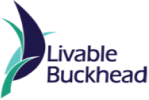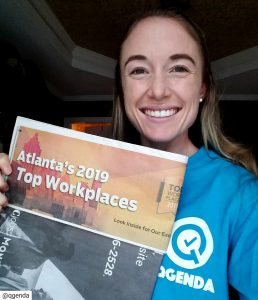Telework: QGenda – The Show Must Go On
***Guest blog by: Matthew Bacorn, QGenda – Training Manager***
QGenda had four new Customer Success Consultants start on March 2. Our formal training process typically lasts four weeks, followed by a transfer to their supervisor and a ramp up in workload that lasts another five months or so.
In this case our new employees went full-time remote halfway through the baseline training program. They were facing the triple challenge of learning the QGenda software, learning the company culture (how are employees treated? Is this company stable? Will there be layoffs? Is my job safe?), and learning to shelter in place. And they had to do all of it without a support network of coworkers.
I certainly can’t tell everyone that we’ve got remote training and onboarding figured out, but we’ve gotten significantly better since we started. Here’s what’s working for us:
Throw timelines out the window — Training takes longer when we’re not all in the same room. There’s fewer side-bar conversations where people can ask questions of their neighbors, it’s more cumbersome to look at everyone’s computer screen to check their progress, and training sessions that are designed around dialogue and a whiteboard are difficult to translate in the absence of pre-existing tools and skills.
Going back to the triple challenge facing the new hires, pressure to meet the same timelines as other new hire classes, who didn’t face anything like the same obstacles, is unreasonable and counter-productive.
Leverage new hires for internal and external projects — As a company that offers medical scheduling software, we’ve had an influx of urgent projects over the past six weeks. We were asked to meet deadlines that we would never have considered in the absence of a public health crisis. But in an effort to support our partners and do our share, it quickly became all hands on deck. Luckily for us, we had four new pairs of hands with wide open calendars.
Training pivoted to a just-in-time model where mini-lessons prepared them for a few days of work at a time. We had short, frequent check-ins to make sure that we could address any unforeseen hiccups. And on the bright side, our new hires got to work with and learn from a wide variety of senior consultants.
Communicate with the rest of the organization as much as possible.
This goes hand-in-hand with the two previous points. When timelines and expectations change, people need to know about it. In our case, plans are made in advance based on the typical 4-week timeline, and all of those plans needed to change.

QGenda adopted Loridans Park, and employees have spent hundreds of volunteer hours transforming this Buckhead greenspace.
Once it (quickly) became apparent that training would take longer and be frequently interrupted, our training team began sending weekly updates to management and the executive team. This led to productive dialogue about the decisions being made, upcoming plans, and when managers could begin assigning various responsibilities to their new direct reports.
Not everyone thinks about how training will be affected by breaks from the norm. I have noticed, however, that most people are very good at understanding these deviations and working within the new reality.
Treat new hires as people, not just employees
I have an enormous amount of respect for our four new hires. They were thrown into a brave new world a few weeks before the rest of us, and once shelter-in-place guidelines took effect, they lacked the stabilizing presence of having co-workers in the same situation. They have responded with grace to every request and delay put in front of them.
I have no real wisdom to offer other than a reminder that as trainers and managers, we often interact with people from a place of privilege. These past six weeks have reminded me to put myself in other people’s skin and walk around in it, as Atticus Finch would say. My one on one conversations with our new hires have been less agenda-driven and more personal, and I don’t regret a single item that I haven’t covered with them.
One of our VPs summed it up nicely when she said that at this point, small mistakes aren’t concerning at all. With all they’ve been asked to do, and how they’ve responded, our new hires should be rock stars in our eyes.
About Matthew Bacorn: Matthew Bacorn is the Training Manager for QGenda. He has a Master’s of Arts in Teaching, and taught high school English before trading the classroom for the tech world. Matthew brings both sides of his background to QGenda by leading new hire training and editing customer-facing documents.
About QGenda: QGenda is the #1 cloud-based, automated physician scheduling software. Since their launch in 2006, QGenda has grown to serve more than 3,000 customers in over 30 medical specialties. Leading physician groups, academic medical centers, hospitals, and health systems use QGenda to optimize their workforce and provide the best possible patient care. Learn more by visiting, qgenda.com.






